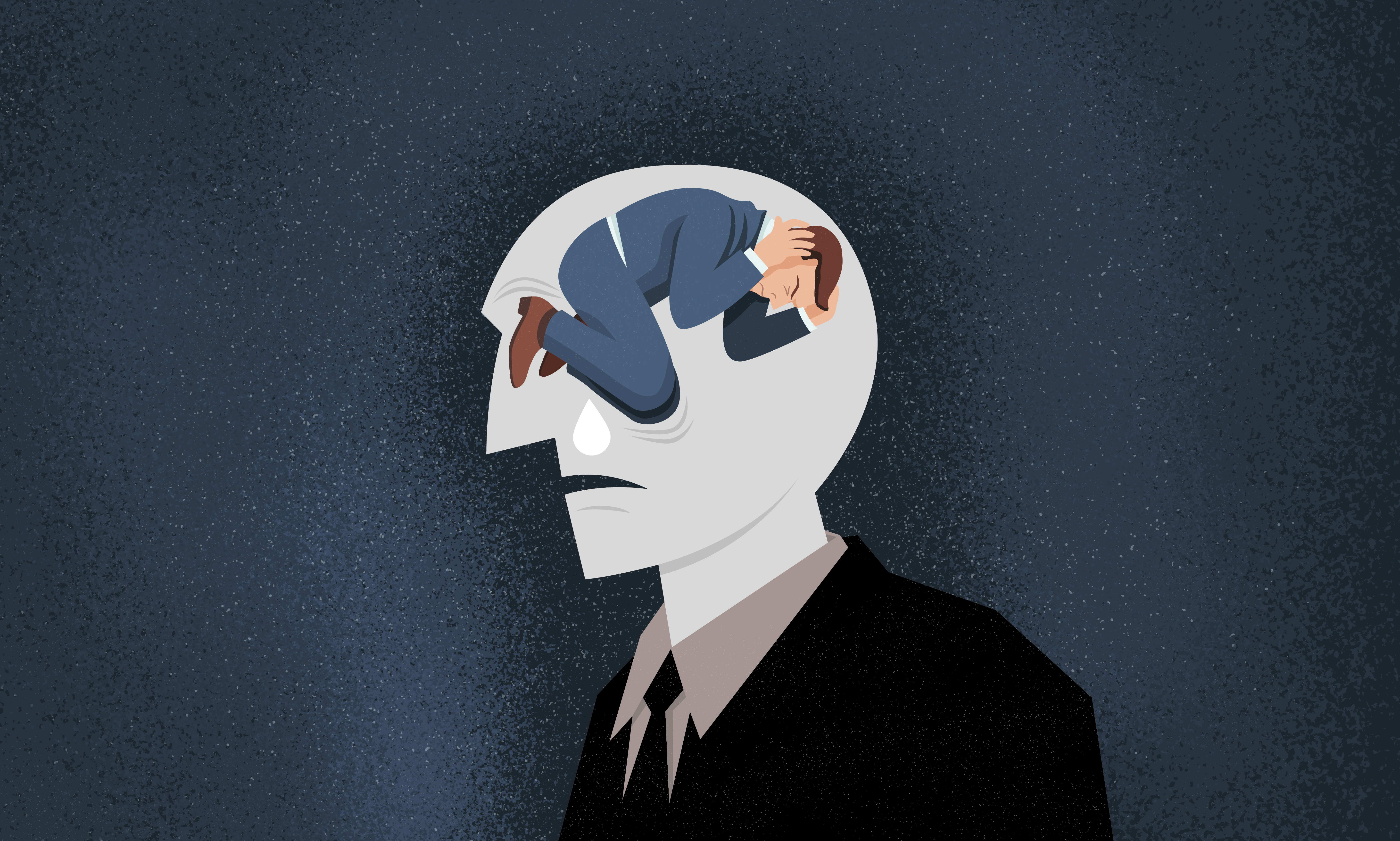World Mental Health Day Special: The working blues
World Mental Health Day takes place annually on October 10.

The concept of “mental health” still suffers from a stigma. Horrific events such as mass shootings are frequently followed by reports that the perpetrators were “mentally ill”.
There is a persistent struggle to differentiate between such extreme conditions and the quieter and perhaps more insidious manifestations that can have otherwise high-functioning people unable to reach their full potential.
While it’s true that certain environments can trigger conditions like depression and anxiety, the reality is that they can affect anyone, regardless of education, economic background, or personal situation.
The so-called “black dog” of depression alone affects up to 350 million people across the globe, according to the World Health Organisation. In the workplace, this translates to both absenteeism and presenteeism (where employees are present, but not fully engaged and performing at lower levels).
The UK Centre for Mental Health calculated that presenteeism from mental ill health alone costs the UK economy £15.1 billion (S$26.5 billion) per annum, while absenteeism costs £8.4 billion (S$14.4 billion).
The impact is also being felt in the Asia-Pacific region, perhaps more so. Researchers from the London School of Economics have found workplace depression could have “wide and devastating” consequences for thousands of organisations in the region.
Their survey of 8,000 employees from eight countries, including China, Japan, and South Korea, found that the collective annual cost for workplace depression in those countries was more than US$246 billion.
Interestingly, the researchers said this figure was only an estimate, and the true cost was likely much higher. This disparity was due to the deep cultural stigma that prevents many people from disclosing any problems they might have.
According to the research, Japan suffered the highest costs associated with employees taking time off for depression, with 22 percent of those that did taking 21 or more days of leave, costing US$14 billion.
“Interventions which support employees with depression need to be developed, adapted, implemented and evaluated across all countries to mitigate the high costs of workplace depression,” lead researcher Dr. Sarah Evans-Lacko said.
Such figures highlight some very real consequences of unchecked mental health. But employers around the world still frown upon the use of health insurance benefits for psychological-based therapies.
Medical leave is also typically reserved for physical ailments only, particularly in Asia-Pacific markets, where “mental health days” are rarely taken as a result.
Progressive employers in the US and Europe are beginning to take notice. Live chat start-up Olark has become a now-famous case in point.
Its CEO Ben Congleton offered a positive and encouraging response to one of the team’s web developers taking time off to focus on her mental health, a response that has since gone viral on social media:
“Hey Madalyn, I just wanted to personally thank you for sending emails like this. Every time you do, I use it as a reminder of the importance of using sick days for mental health — I can’t believe this is not standard practice at all organisations.”
The business case
|
In Singapore and in many Asia-Pacific economies, employers frequently ask after the mental state of potential recruits – grouping the question with others about criminal records and bankruptcy status.
This is despite that fact that there is no requirement under Singapore’s Employment Act for job candidates to declare their mental health histories.
What employers do with the information is up to them, but the general perception is that answering with anything other than a flat negative would send a candidate’s application straight to the bin.
Porsche Poh, executive director of Singaporean mental health advocacy group, Silver Ribbon, notes that Asian cultures typically carry both stigma and a lack of real understanding towards mental illness.
“It’s always a challenge to talk about it here because it’s such a taboo,” she says.
“When Silver Ribbon first launched in 2006, organisations frequently told us that they did not want to be associated with our outreach events and education initiatives.”
Without intervention, the costs to economies are poised to skyrocket.
A Harvard University study estimated that, between 2012 and 2030, these conditions would dampen productivity increases by more than US$9 trillion and US$2 trillion in China and India respectively.
Governments across the region have been taking note. For instance, 2010 saw Japan declaring mental illness to be one of five priority diseases to be targeted by research, while China passed its first ever mental health law in 2012.
In 2014, India adopted its first mental health policy and Indonesia also updated its existing legislation.
In Singapore, the 2017 National Day Rally speech saw Prime Minister Lee Hsien Loong announce a new focus on mental health issues, with the government planning to spend an additional S$160 million over the next five years to make mental health services available in public-access polyclinics. The funding also aims to increase general public education around the issue.
A holistic approach to well-being
As Silver Ribbon’s Poh points out, “mental health is everybody’s business.” And with billions of dollars of lost productivity on the line, it is without doubt an employer’s business specifically.
Fortunately, organisations do not lack for options in addressing mental health in both policies and culture.
For example, professional services firm EY leverages peer support through a four-step process called, “r u ok?” This encourages employees to check in with colleagues who are struggling with mental illness.
|
In a similar vein, Prudential Financial in the US conducts forums where employees, including senior executives, share their experiences with conditions such as depression and addiction.
The company also has flexible work programmes in place to allow employees the freedom to work around periods of poor mental health.
US software company Hubspot also offers flexible hours for the same reason – and takes an extra step by providing its employees with unlimited vacation time.
According to Katie Burke, the company’s Chief People Officer, both initiatives seek to provide a safe space for employees to “take off the armour” without being forced to disclose their personal issues.
Of course, mental health remains a single subset of any holistic approach to well-being – and companies are now also beginning to incorporate it into their existing programmes.
American Express, for instance, has a global health and emotional well-being programme rolled out in more than 30 countries. This offers free counselling to employees, among other things.
Mental health advocacy groups are also strong allies for HR professionals in considering the mental and emotional health of their employees.
In conjunction with this year’s World Mental Health Day, which is themed around mental health in the workplace, Silver Ribbon recently launched a pledge initiative for Singaporean employers.
Participating employers formally pledge their support to promote mental wellness at the workplace – whether by supporting employees coping with mental health issues or not discriminating against job candidates who do.
In return, Silver Ribbon offers its own support to these organisations via complimentary workshops and counselling.
Pledging organisations are also invited to the Silver Ribbon Workplace Emotional Health and Wellness Summit to receive a commemorative plaque from Singapore’s Minister for Social and Family Development.
“So far we have recruited more than 30 employers for the pledge,” Poh says. “Once organisations realised that they’d be helping themselves, their friends, their relatives, they started coming on board.”
Ultimately, if there is one thing these initiatives have in common, it is in emphasising that people are the most important asset any organisation can have. And they are a resource that is most valuable when happy and healthy in both mind and body.
As Ben Congleton – the Olark CEO supportive of his employees taking “mental health days” writes: “It’s 2017. We are in a knowledge economy. Our jobs require us to execute at peak mental performance.
“When an athlete is injured they sit on the bench and recover. Let’s get rid of the idea that somehow the brain is different.”



